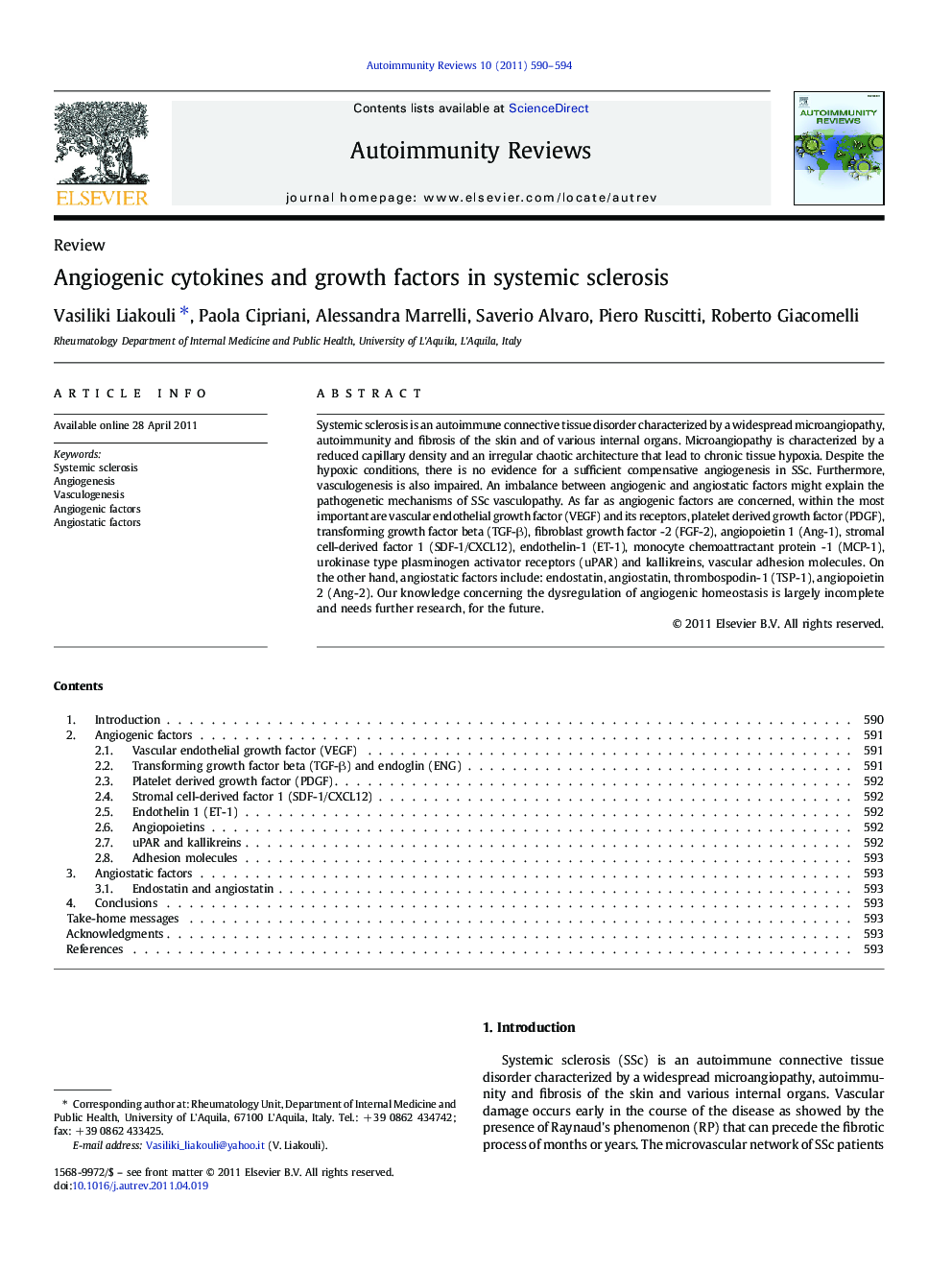| کد مقاله | کد نشریه | سال انتشار | مقاله انگلیسی | نسخه تمام متن |
|---|---|---|---|---|
| 3341939 | 1214253 | 2011 | 5 صفحه PDF | دانلود رایگان |

Systemic sclerosis is an autoimmune connective tissue disorder characterized by a widespread microangiopathy, autoimmunity and fibrosis of the skin and of various internal organs. Microangiopathy is characterized by a reduced capillary density and an irregular chaotic architecture that lead to chronic tissue hypoxia. Despite the hypoxic conditions, there is no evidence for a sufficient compensative angiogenesis in SSc. Furthermore, vasculogenesis is also impaired. An imbalance between angiogenic and angiostatic factors might explain the pathogenetic mechanisms of SSc vasculopathy. As far as angiogenic factors are concerned, within the most important are vascular endothelial growth factor (VEGF) and its receptors, platelet derived growth factor (PDGF), transforming growth factor beta (TGF-β), fibroblast growth factor -2 (FGF-2), angiopoietin 1 (Ang-1), stromal cell-derived factor 1 (SDF-1/CXCL12), endothelin-1 (ET-1), monocyte chemoattractant protein -1 (MCP-1), urokinase type plasminogen activator receptors (uPAR) and kallikreins, vascular adhesion molecules. On the other hand, angiostatic factors include: endostatin, angiostatin, thrombospodin-1 (TSP-1), angiopoietin 2 (Ang-2). Our knowledge concerning the dysregulation of angiogenic homeostasis is largely incomplete and needs further research, for the future.
Journal: Autoimmunity Reviews - Volume 10, Issue 10, August 2011, Pages 590–594